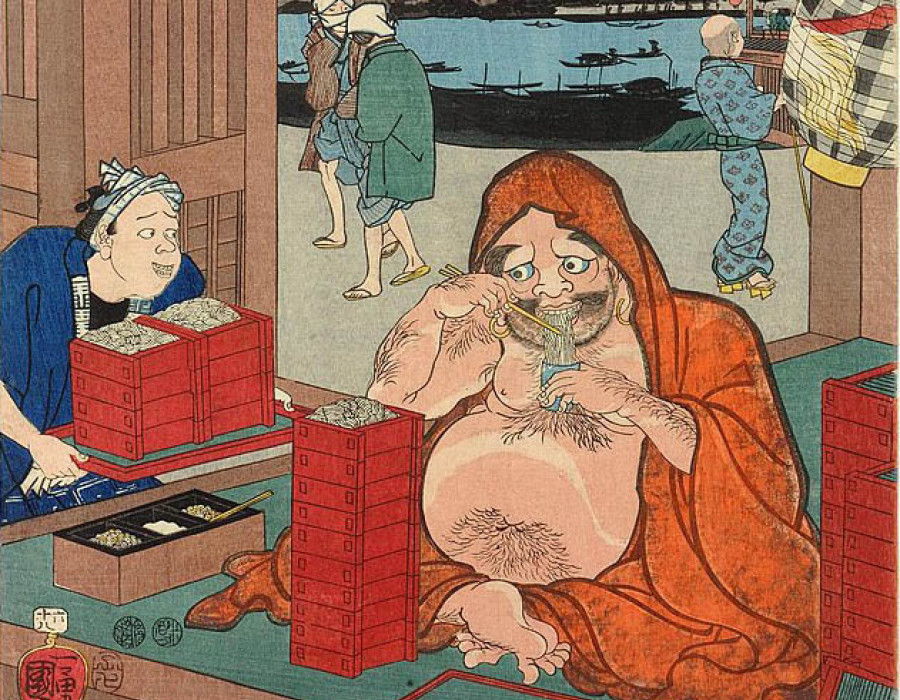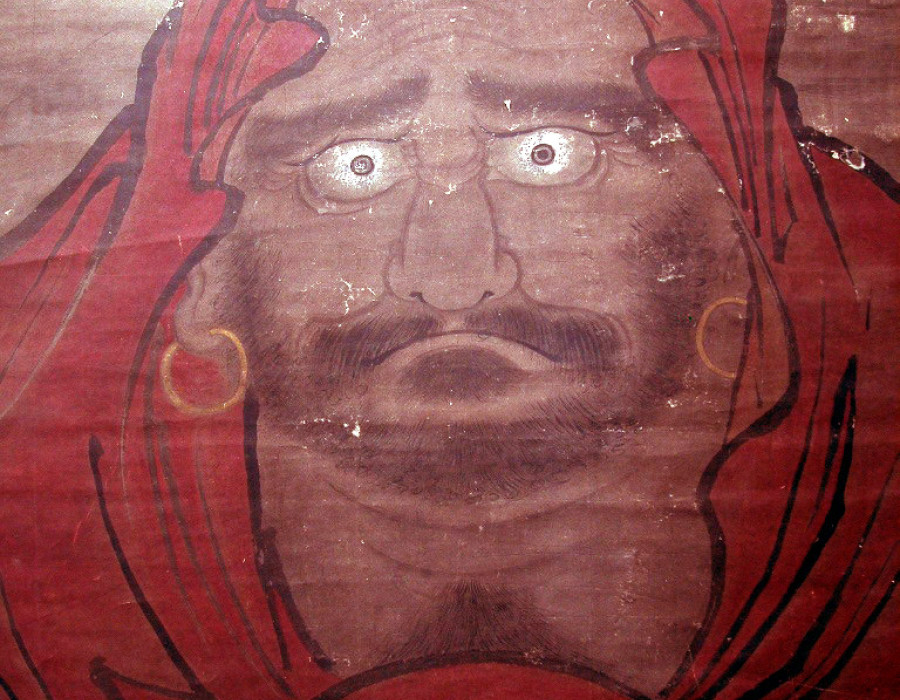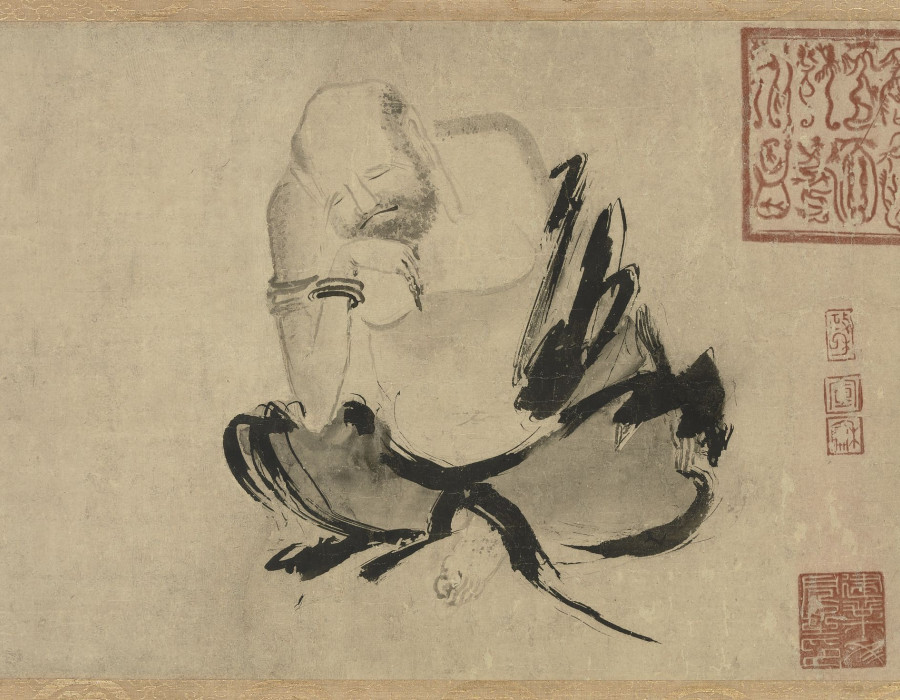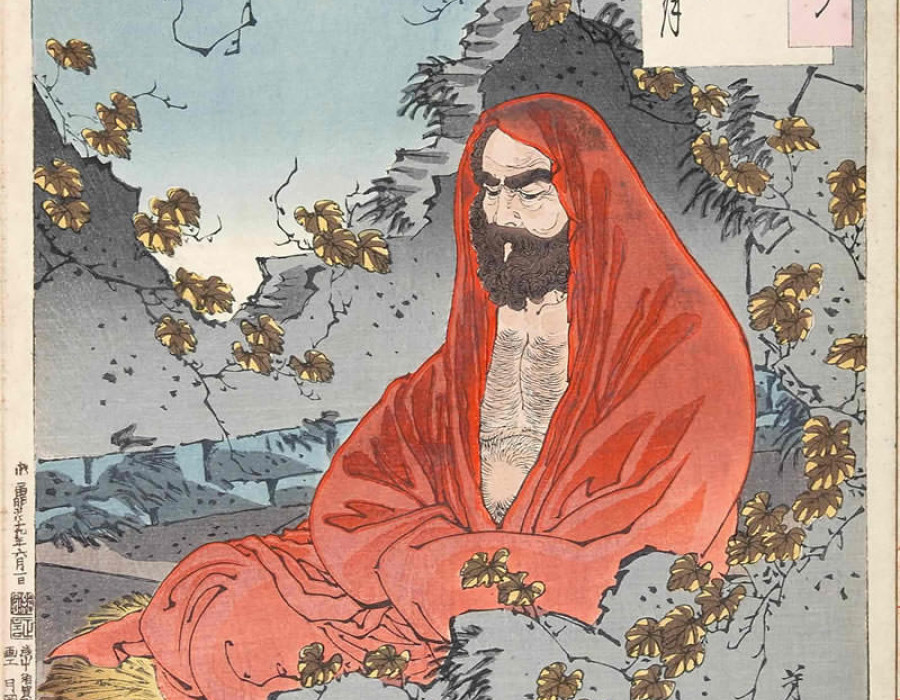
Martin Goodson
Huike's Encounter with Bodhidharma
The Story of Bodhidharma
When Huike came to Bodhidharma for training, he was berated by the master for his lack of commitment and ignorance of the severity of the training. Although Huike's response made him the first disciple of Zen, it was also to his great personal cost.
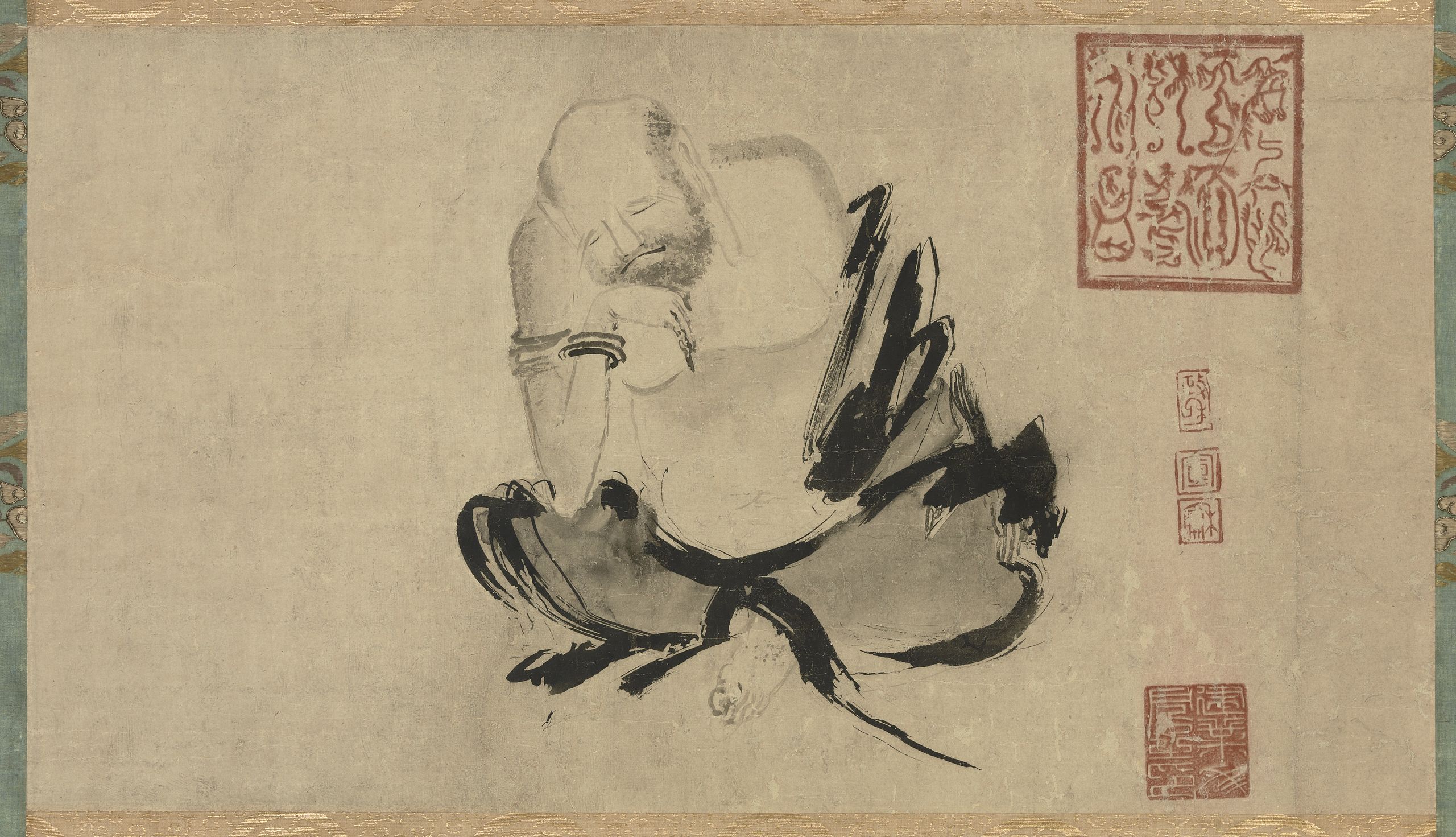
Depicts Zen monk Huike (慧可) thinking.
By Shi Ke (石恪) (attributed) - http://en.wikipedia.org/wiki/Image:Huike_thinking.jpg, Public Domain, https://commons.wikimedia.org/w/index.php?curid=3407249
Leaving the Imperial palace it is said that Bodhidharma crossed the Yangtze River on a piece of straw and went to a cave close to the Shaolin monastery in the province of Wei.
Here he sat for nine years, sitting so ardently that his legs rotted away!
Another story goes that when he fell asleep during zazen (sitting meditation), he cut off his eyelashes and where they fell the tea bush sprang up. Hence why tea is served to the monks during the long sitting periods to keep them awake.
Another monk hearing of the patriarch came to visit to beseech Bodhidharma to teach him. This monk was called Huike (jp: Eka).
Standing outside the cave Huike shouted out asking for the teachings but Bodhidharma ignored him.
To show his resolve Huike kept standing there outside the cave as the snow fell. All through the night he stood until in the morning the snow reached up to his knees.
At this point Bodhidharma took pity on him and asked him what he wanted?
Huike replied that he had come for the Dharma.
Bodhidharma rebuked him saying:
“The old masters broke their bones and ground the very marrow of them for the Dharma; yet you with your half-hearted efforts come to demand it!”
We must understand that Bodhidharma was testing Huike; just how determined was he for the Great Treasure store of the Dharma?
Huike’s response was to take out his sword (which everyone carried in those days), and to cut off his right arm at the elbow.
This startling act has, like all these traditional stories, to be read with the ‘single eye of the Dharma’.
We too use the colloquialism ‘to give my right arm’ for something that means so much to us.
But what would I give to attain to the Dharma?
When we read these stories we should understand that Bodhidharma is speaking directly to us.
So Bodhidharma asks Huike: “What is it you have come for?”
Huiki: My heart is not at peace; please pacify my heart.”
Bodhidharma: “Show me this heart and I will pacify it for you.”
Huike’s question already shows that he is well attained in his training. Unlike many, he realises that his problems do not lie outside the heart but stem from it. He also knows that it is in the heart that the solution lies too.
However he is still under the view that the heart is something that requires pacification. He still makes it an object to be stilled and himself one who is subject to it. This is how we can all feel sometimes. Something happens, I don’t like it and in the judgement to which I cling I have set myself in opposition to it. No wonder our hearts are not at peace.
Now we must presume that at this point Huike goes away to search for this heart. Other Zen masters have also used this method.
The great Japanese Zen Master Hakuin had a temper but used the practice that whenever his temper flared he asked himself “Now who has this temper?” He then searched for this ‘owner’. In effect this is the same method, only Huike is looking for the one who’s heart is restless. The one who ‘has’ this restless heart, who owns it can command it and bring it before Bodhidharma. But what is discovered is that this heart has no owner (Vast emptiness…). So Huike returns.
“I cannot find it!”
“There” says Bodhidharma “I have pacified it!”
In time, Bodhidharma passed on the Buddha’s robe and bowl to Huike who became the Second Chinese Patriarch of the Chan/Zen school.

